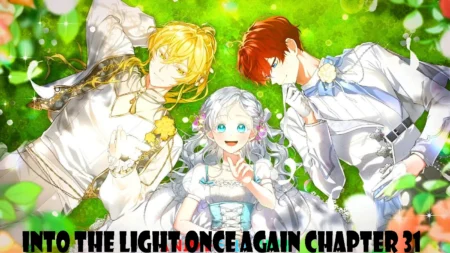The phrase “komik hisashiburi ni jikka ni kaettara otouto ga ts shiteta” holds a unique place in the Japanese language, encapsulating a rich tapestry of cultural nuances, familial relationships, and the essence of returning home. Each element within the phrase contributes to a deeper understanding of Japanese society and its values. In this exploration, we will delve into the components of the expression, unravel its cultural implications, and examine its significance in the context of sibling relationships, sports, nostalgia, linguistic complexity, and cross-cultural understanding.
Breaking Down the Phrase “Komik Hisashiburi Ni Jikka Ni Kaettara Otouto Ga Ts Shiteta”
“Komik hisashiburi ni jikka ni kaettara otouto ga ts shiteta” is a phrase that, when translated, roughly means “When I returned home after a long time, my younger brother had grown taller.” Let’s dissect the components of this expression. “Komik” implies a prolonged period or a long time, while “hisashiburi” denotes the feeling of not having seen someone for a while. “Jikka” signifies one’s home or hometown, and “kaettara” refers to returning. “Otouto” translates to younger brother, and “ts shiteta” indicates growth or increase in height. This seemingly simple phrase encapsulates a narrative of time, absence, and the changes observed upon returning home.
Cultural Insights
In Japanese culture, the concept of returning home holds profound significance. The ties to one’s hometown are deeply rooted in tradition and carry a sense of nostalgia and belonging. The act of coming back after an extended period is often associated with a mix of emotions, blending the joy of reconnection with the bittersweet realization that things may have changed. The phrase reflects a cultural emphasis on family bonds and the recognition of growth and transformation, not just in individuals but in the familial and societal contexts as well.
The Concept of Returning Home
The theme of returning home is recurrent in various cultures worldwide, symbolizing a universal human experience. However, in the Japanese context, this return is often laden with specific cultural expectations and rituals. Whether it’s a visit after years of living away or a return to one’s ancestral hometown, the act of coming back is steeped in tradition and respect for one’s roots. “Komik hisashiburi ni jikka ni kaettara otouto ga ts shiteta” encapsulates this sentiment, capturing the essence of change and growth within the familial framework.
Sibling Relationships in Japan
The inclusion of the term “otouto” (younger brother) in the phrase brings attention to the dynamics of sibling relationships in Japanese culture. Siblings hold a unique place in Japanese society, and the bond between them is often considered significant. The phrase reflects not only the physical growth of the younger brother but also the acknowledgment of time passing and the evolving nature of relationships. The observation of the brother’s increased height becomes a metaphor for the changes and maturation that occur during the separation and subsequent reunion.
Playful and Fun Sports
The phrase takes an interesting turn by incorporating the idea of the younger brother having grown taller, using the term “ts shiteta.” This brings a playful and lighthearted dimension to the expression. In the context of sports, particularly in Japan where activities like sumo wrestling and baseball are immensely popular, physical growth is often linked with prowess and achievement. The playful nature of the phrase adds a layer of humor to the recognition of the brother’s height increase, showcasing the joy and lightness embedded in such familial observations.
Nostalgia and Reconnection
“Komik hisashiburi ni jikka ni kaettara otouto ga ts shiteta” encapsulates the bittersweet blend of nostalgia and reconnection that comes with returning home. The phrase hints at the passage of time and the inevitable changes that occur in the absence of physical presence. The acknowledgment of the younger brother’s growth serves as a reminder of the transient nature of life and the importance of cherishing moments with loved ones. This nostalgia is not tinged with sorrow but rather with an appreciation for the journey that has shaped both individuals in the relationship.
Linguistic Complexity
The linguistic complexity of the phrase lies in its ability to convey a nuanced narrative in a concise form. Japanese, as a language, often relies on contextual understanding and shared cultural knowledge. The phrase captures a specific moment in time, encompassing the duration of absence, the act of returning, and the tangible change observed in the younger brother’s height. The efficiency of expression in Japanese allows for intricate stories to be woven into a few words, emphasizing the richness of the language and its ability to encapsulate multifaceted experiences.
Usage in Modern Conversations:
While the phrase may carry traditional and cultural connotations, its usage is not confined to nostalgic or familial contexts. In modern conversations, “komik hisashiburi ni jikka ni kaettara otouto ga ts shiteta” can be employed in various situations where change and growth are observed after a significant period. This could range from catching up with old friends, revisiting a favorite place, or even witnessing the evolution of a neighborhood. The adaptability of the phrase reflects its timeless relevance in capturing the essence of returning to a familiar space.
Cross-Cultural Understanding:
The phrase serves as a bridge for cross-cultural understanding, inviting individuals from different backgrounds to appreciate the nuances embedded in the Japanese language and culture. The act of returning home and witnessing the change in a loved one is a universal experience, but the specific details and emphasis on familial relationships may vary across cultures. Exploring expressions like “komik hisashiburi ni jikka ni kaettara otouto ga ts shiteta” allows for a deeper appreciation of cultural diversity and the ways in which language reflects and shapes societal values.
Conclusion:
In conclusion, “Komik Hisashiburi Ni Jikka Ni Kaettara Otouto Ga Ts Shiteta” is a phrase that encapsulates a rich tapestry of cultural nuances, familial bonds, and linguistic intricacies within the Japanese context. The exploration of this expression has allowed us to delve into the profound significance of returning home, the dynamics of sibling relationships in Japan, and the joyful aspects of playful sports. Furthermore, it sheds light on the nostalgia and reconnection embedded in the phrase, reflecting a universal theme that resonates across cultures.
FAQs Komik Hisashiburi Ni Jikka Ni Kaettara Otouto Ga Ts Shiteta
- What is the meaning of “Komik Hisashiburi Ni Jikka Ni Kaettara Otouto Ga Ts Shiteta”?
The phrase signifies, “When I came back after a while, my younger brother had gotten taller,” encapsulating the essence of returning home to noticeable changes in a sibling.
- Why is the concept of returning home significant in Japanese culture?
Returning home signifies a deep connection to one’s roots, family, and the importance of maintaining bonds despite the passage of time.
- How does the phrase reflect sibling relationships in Japan?
It highlights the dynamics of familial relationships and the inevitable changes that occur over time.
- What role do playful sports play in the cultural context of the phrase?
Playful sports evoke a sense of joy and camaraderie, contributing to the overall positive and nostalgic tone of the expression.
- Why is nostalgia and reconnection emphasized in the exploration of this phrase?
Nostalgia and reconnection evoke universal emotions, emphasizing the enduring themes of familial bonds and shared memories.
- What linguistic complexities are embedded in the phrase?
The phrase showcases the linguistic richness of Japanese, combining formality, time references, and familial terms in a concise expression.
- How is the phrase used in modern conversations?
It is employed to convey a sense of surprise or realization upon returning home and noticing changes in a sibling.
- Why is cross-cultural understanding important in the context of this exploration?
Understanding the cultural nuances behind the phrase fosters appreciation for diverse perspectives and shared human experiences.
- Does the phrase have broader implications beyond its literal translation?
Yes, it encapsulates a cultural narrative, reflecting themes of growth, change, and the enduring ties that bind families together.
- How does exploring this phrase contribute to a broader appreciation of Japanese culture?
It provides insights into Japanese values, familial dynamics, and linguistic intricacies, fostering a deeper understanding and appreciation for the culture.






